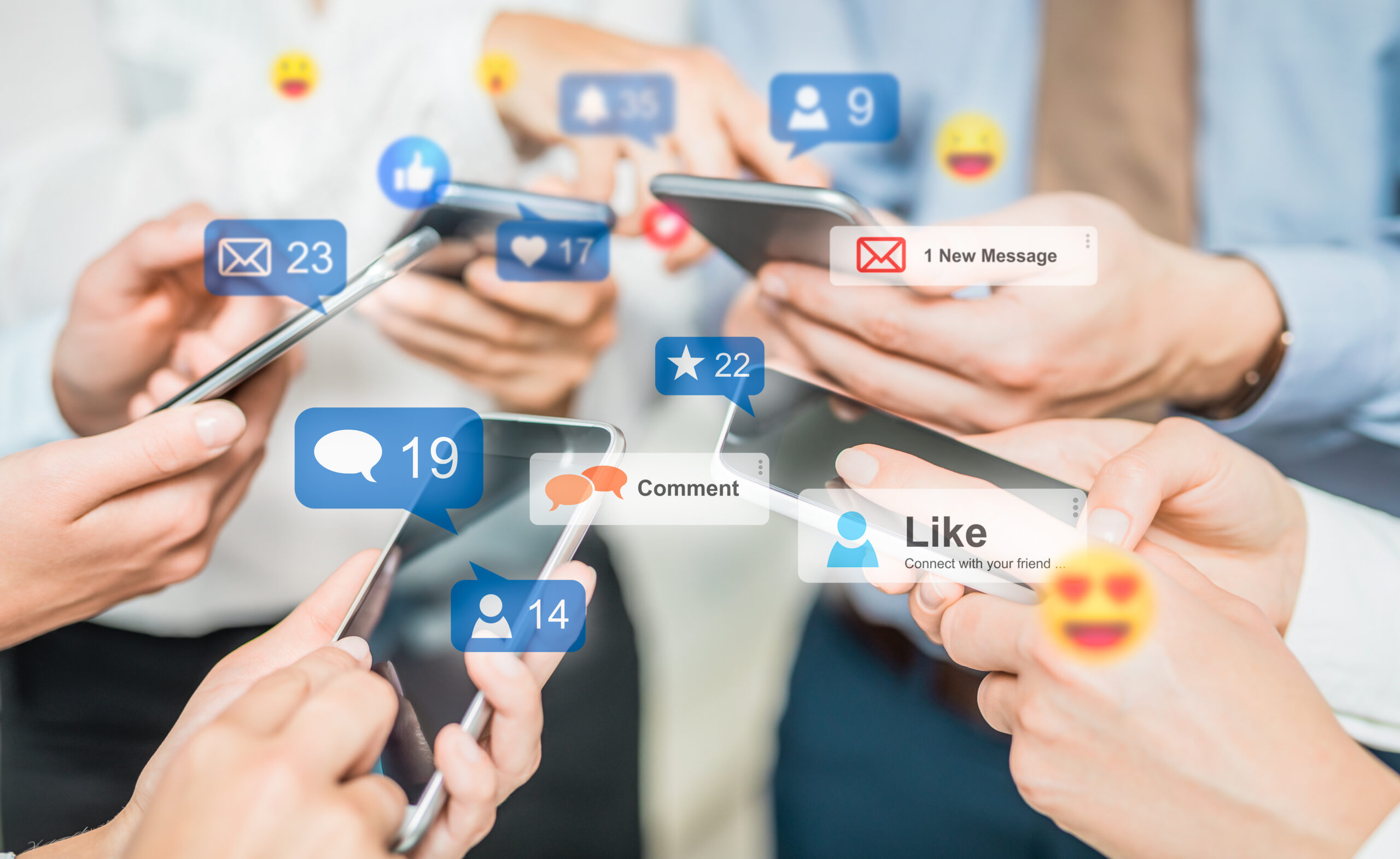In today’s interconnected world, social media has become an integral part of our daily lives. Platforms like Facebook, Instagram, Twitter, and TikTok offer us ways to stay connected, share experiences, and access information in real-time. While these networks provide enormous benefits, they can also have profound effects on mental health. This blog delves into the multifaceted impacts of social media on mental health and offers insights on how to navigate this digital landscape mindfully.
The Double-Edged Sword of Connectivity
Social media platforms are designed to foster social connections, enabling you to keep in touch with friends and family, join communities, and discover new interests. On the surface, this heightened connectivity appears beneficial. However, the virtual world can sometimes magnify feelings of isolation and inadequacy. For some, constant exposure to curated images and success stories can lead to a harmful cycle of comparison and self-doubt.
The Statistics Speak Volumes
The growing concern over social media’s impact on mental health is supported by numerous studies. According to a report by the Royal Society for Public Health, young people who spend more than two hours a day on social networking sites are more likely to report psychological distress and symptoms of anxiety and depression (source). The allure of likes, comments, and shares can create a sense of validation dependency, leading to potential negative mental health outcomes when those expected interactions do not materialize.
Anxiety and Depression
One of the most significant mental health issues associated with social media is the development of anxiety and depression. Scrolling through seemingly perfect lives can trigger feelings of inadequacy and insecurity. It is easy to forget that what you see online is often a polished snippet of reality. This constant bombardment can lead to a distorted self-image and heightened stress.
Fear of Missing Out (FOMO)
FOMO, or Fear of Missing Out, is a widespread phenomenon exacerbated by social media. When you see friends or acquaintances enjoying activities you’re not a part of, you might experience feelings of exclusion and loneliness. This can escalate into social anxiety and a compulsion to stay constantly connected, even at the expense of your mental well-being.
Cyberbullying
Cyberbullying is another detrimental consequence of social media. Unlike traditional bullying, cyberbullying can occur anytime and is often anonymous, making it harder to escape. The psychological effects of harassment, including depression, anxiety, and in extreme cases, suicidal thoughts, can have devastating impacts on individuals, especially adolescents who are more vulnerable to external validation.
Sleep Disruption
The constant engagement with social media can interfere with your sleep patterns, particularly if you spend time on your smartphone before bed. The blue light emitted by screens can inhibit the production of melatonin, the hormone responsible for regulating sleep. Poor sleep quality can exacerbate existing mental health issues and diminish your overall well-being.
Positive Connections and Support Networks
While there are notable downsides to social media, it also offers numerous benefits when used mindfully. Social media can be instrumental in building support networks and finding like-minded communities that offer empathy, advice, and solidarity. Online platforms can also provide access to mental health resources and professional support, breaking down barriers for those who may struggle to seek help in person.
Striking a Healthy Balance
Given the dual nature of social media, it’s crucial to develop strategies for maintaining a healthy relationship with these platforms. Here are some actionable tips to help you navigate the digital landscape:
Set Boundaries
Creating clear boundaries can help you manage your social media usage effectively. Allocate specific times for checking social networks and avoid aimless scrolling. Establishing “no phone” zones, such as the bedroom or during meals, can protect your mental space from constant digital intrusion.
Curate Your Feed
Be selective about the content you engage with. Unfollow accounts that trigger negative emotions or foster unhealthy comparisons, and instead, follow those that inspire and uplift you. Fill your feed with positive and educational content that aligns with your interests and goals.
Practice Mindfulness
Mindfulness can mitigate the adverse effects of social media usage. Take regular breaks to engage in offline activities that foster well-being, such as exercise, reading, or spending quality time with loved ones. By being present in the moment, you can reduce the mental burden of constant connectivity.
Seek Professional Help
If you find that social media is significantly affecting your mental health, do not hesitate to seek professional support. Speaking with a trained mental health professional can provide you with strategies to cope with these challenges and improve your overall mental well-being.
The Role of Mental Health Professionals
Navigating the complex relationship between social media and mental health can be daunting, but you don’t have to do it alone. Mental health professionals are equipped to provide valuable insights and coping mechanisms tailored to your individual needs. They can help you understand the underlying issues exacerbated by social media and guide you on a path towards healthier engagement.
Get Professional Mental Health Treatment in Atlanta For Social Media Impacts Today
At Resilience Behavioral Health, we understand the nuanced impact that social media can have on mental health. Our comprehensive mental health treatment program in Atlanta is designed to address the unique challenges you face in today’s digital age. If you or someone you know is struggling with the effects of social media on mental well-being, we are here to help. Our team of compassionate professionals is dedicated to providing personalized support and effective strategies for managing mental health in the modern world.
Take the first step towards mental wellness and reclaim control over your digital life. Contact Resilience Behavioral Health to learn more about our mental health treatment program in Atlanta and start your journey to a balanced, healthier you. Social media’s influence on emotional health has grown alongside societal stressors like the pandemic. Combining this with pandemic insights, you can explore the impact of COVID‑19 on mental health for a fuller picture.


